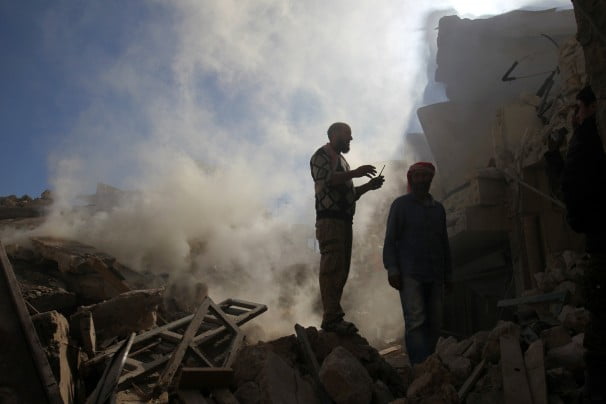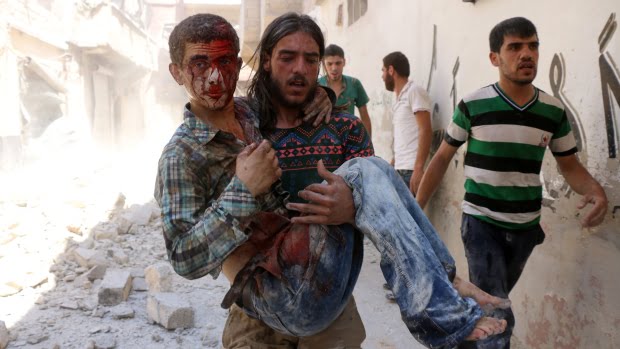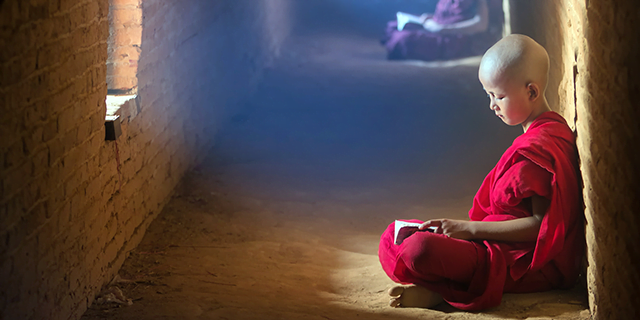
BEIRUT — A tentative deal to evacuate the last rebel-held zones in the embattled Syrian city of Aleppo was reached Tuesday after reports of widespread civilian deaths spurred diplomatic efforts, a Russian envoy and rebel commanders said.
Details of the deal remained unclear, however. Among the questions: whether the possible escape routes would be open to civilians, where those evacuated would be taken, and what could face rebel fighters choosing to leave.
U.S. officials and Western diplomats expressed skepticism that the deal would be implemented and said they have seen no indication that the Russians were prepared to pressure the Syrian government to abide by it.
“We’re trying to ascertain the ground truth here, but we remain skeptical,” said one official, speaking on condition of anonymity to discuss a quickly changing situation. “We’ve seen these kind of declarations before by the Russians and the regime, and just as many times we’ve seen them violated and broken.”
Late Tuesday, Russia announced that the Syrian government was in full control of all of Aleppo, though that could not be independently confirmed.
The deal would end the intense battles and bloodshed that have wracked Aleppo. Among the dead are at least 82 civilians killed by Syrian soldiers and allied Shiite militias from Iraq and backed by Iran, according to U.N. reports.
It would also signal an end for rebel fighters clinging to their last footholds in the strategic city after being pushed back by overwhelming firepower.
After months trapped in one of the deepest humanitarian crises of Syria’s 5 1/2-year war, an aid worker, Bakry al-Obed, described overwhelming relief at the news.
“I am so relieved, I feel like the world has been handed to me on a platter. You do not understand the kind of fear we have been living in, and now it’s over,” he said.
When rebel forces seized Aleppo’s eastern districts in 2012, they hoped the area would become the seat of a new rebel government that would buttress their challenge to Syrian President Bashar al-Assad in the capital, Damascus. Its loss is likely to deal a crushing blow from which the armed groups probably would not be able to recover.
It would usher the war into a reckoning phase, with an array of rebel forces boxed together in a single province.
“An agreement has been reached” for an evacuation, said Yasser al-Youssef, a spokesman for the Nour al-Din al-Zinki rebel brigade, one of the groups that has joined the war against the Assad government, whose forces gained a critical edge last year when ally Russia deployed its warplanes to Syria.
Russia’s ambassador to the United Nations, Vitaly Churkin, said the first rebels could be leaving “within hours,” but no additional details were given.
Meanwhile, a Syrian military official told the Reuters news agency that he was not aware of any deal.
In Geneva, the United Nations said government loyalists have executed dozens of people in their sweep through remaining opposition-held districts where rebels were battling for survival after being pushed into a final scrap of territory.
Rupert Colville, a spokesman for the U.N. human rights agency, said his office received reports that Syrian soldiers and allied Iraqi militia have killed at least 82 civilians, entering homes and killing people “on the spot.”
Others were reportedly shot as they fled. A list of names provided to the United Nations included 11 women and 13 children, he said.
The reports of summary executions of civilians and apparent house-by-house rampages reflected the chaos gripping Aleppo as forces supporting Assad have pushed rebels into a patch of territory covering less than three square miles.
Former British foreign secretary David Miliband, now head of the aid group International Rescue Committee, said the area has become “a bloody graveyard for thousands of innocent people and for the death of respect for international law and the rules of war.”
Jens Laerke, the U.N. humanitarian spokesman, described “a complete meltdown of humanity in Aleppo,” citing reports from a Syrian volunteer rescue group known as the White Helmets.
“It’s hell,” he added.
[Cries from embattled Aleppo: “No place now to go”]
International aid agencies urged government forces Tuesday to refrain from acts of revenge against people who either escape rebel-held areas or are captured there.
“Thousands of civilians’ lives are in danger as front lines close in around them,” said a statement from the International Committee of the Red Cross. “A deepening humanitarian catastrophe and further loss of life can be averted only if the basic rules of warfare — and of humanity — are applied.”
Almost a month after pro-Assad troops launched a final push to take back the city, the rebels’ collapse had come swiftly. Their final districts were falling like dominoes, sparking jubilation in the streets of some government-held areas.
Rebel forces have regularly shelled west Aleppo, and the presence of an al-Qaeda-linked group in Syria’s armed rebellion has led many government supporters to view all militants as terrorists.
France said Tuesday that it has requested an emergency meeting of the U.N. Security Council to urgently address the crisis. François Delattre, the French ambassador, said the session would discuss measures to confront “the worst humanitarian tragedy of the 21st century unfolding before our eyes.”
Thousands of people have been killed in the four-year-long battle for the city, once a key economic hub. Throughout much of the rebel-held east, the streets have been shattered beyond recognition. The area’s health system has also been systematically attacked.
In recent weeks, more than 100,000 people have fled fighting in what remains of the rebel enclave, pouring into government- and Kurdish-controlled areas in recent weeks, according to the Syrian Observatory for Human Rights monitoring group.
Syrian state television has showed thousands of people streaming into the government-held part of the city clutching possessions and bags.
Fighting appeared to have slowed Tuesday as rain and thunderstorms made it difficult for warplanes to fly.
In a video posted to the livestreaming site Periscope, Abdulkafi al-Hamdo, an English teacher, addressed viewers from an empty street. “Now it is raining. Bombs a little bit calmer,” he said. “We wanted freedom. We didn’t want anything else but freedom. You know, this world doesn’t like freedom, it seems.”
Thousands more were still trapped in the rebel-held areas, refusing to leave because they fear for their safety at the hands of government troops, said Zouhir al-Shimale, an activist who is still living under rebel control.
“We’re in a very tiny area, and there are so many families stuck here,” he said. “Either they can’t leave because they are wanted by the government or they don’t want to leave because this is their home.”
Friends who escaped to the east have told him that men who leave are being separated from the others who are fleeing and taken to serve in the depleted Syrian army, one of the reasons he is not leaving the enclave.
In Berlin, French President François Hollande repeated Western appeals for Russia to help create a humanitarian aid for civilians trapped in Aleppo.
Hollande, after meeting German Chancellor Angela Merkel, said Aleppo’s “humanitarian situation . . . is unacceptable.”
[Source:-Washington Post]







